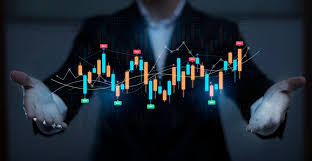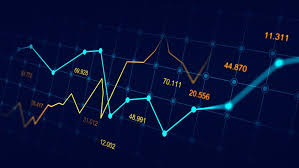
Is Forex Trading Gambling? Unraveling the Myths and Realities
Forex trading, or foreign exchange trading, has gained immense popularity over the past few decades. With the rise of online platforms, individuals are now able to buy and sell currencies at their fingertips. However, this accessibility has also led many to wonder: is forex trading gambling? To answer this question, it’s crucial to delve into the fundamentals of forex trading, its mechanics, risks involved, and how it differs from traditional gambling. Moreover, if you are looking to get started, consider checking out is forex trading gambling Trading Platform PH for a reliable trading environment.
Understanding Forex Trading
At its core, forex trading involves the exchange of one currency for another, typically in pairs (for example, EUR/USD, GBP/JPY). The primary goal for traders is to speculate whether the value of a currency will rise or fall against another, thereby making a profit based on these fluctuations. Unlike traditional stock markets, forex operates 24 hours a day, five days a week, allowing for greater flexibility and opportunities for traders around the globe.
The Mechanics of Forex Trading
Forex trading primarily operates through brokers who facilitate the buying and selling of currencies on behalf of traders. The value of currency pairs is determined by a wide range of factors, including economic indicators, interest rates, and geopolitical events. Traders use various analysis methods—fundamental analysis, technical analysis, or a combination of both—to make informed decisions on their trades.
Defining Gambling
Gambling is typically characterized by risking money or valuables on an event with an uncertain outcome, primarily for the purpose of winning additional money or valuables. Unlike gambling, which often relies on chance and luck, forex trading, while risky, is driven by analysis, research, and strategic planning. This fundamental difference helps in distinguishing forex trading from gambling.
Similarities Between Forex Trading and Gambling
While there are significant differences, some similarities may lead to the gambling label being applied to forex trading:

- Risk of Loss: Both activities involve the potential for significant financial loss. Traders, like gamblers, can lose their invested capital, especially if they do not manage risk properly.
- Emotional Decision-Making: Both forex trading and gambling can lead to emotional decision-making. Traders may experience fear, greed, or overconfidence, similar to gamblers, which can adversely affect their trades.
- Speculation: Both involve speculation on future outcomes. In gambling, this could be the outcome of a game. In forex, it’s the valuation of currency pairs.
Key Differences: Forex Trading vs. Gambling
Despite some similarities, the differences between forex trading and gambling are critical:
- Analytical Approach: Forex trading often relies on extensive research and strategies. Traders analyze market trends and data, while gamblers may rely more on chance or intuition.
- Market Regulation: Forex markets are regulated to ensure fair trading practices. Regulatory bodies impose rules to protect traders. In contrast, gambling laws vary significantly and may not always ensure the same level of consumer protection.
- Time Commitment: Successful forex trading usually requires a significant amount of time to learn, practice, and refine trading skills. In contrast, gambling can be more of a pastime activity, requiring less time and education.
- Potential for a Profitable Skillset: With the right knowledge and strategies, traders can consistently make profits over time. In contrast, gambling generally relies on luck, with statistically lower chances of long-term success.
Risks of Forex Trading
Just like gambling, forex trading carries inherent risks. Traders can leverage their positions, which can magnify profits but also lead to greater losses. The lack of regulation in some areas can expose traders to scams and untrustworthy brokers. It is crucial for anyone considering entering the forex market to conduct thorough research and be aware of the potential risks involved.
Responsible Trading: Strategies to Reduce Risk
To acknowledge that forex trading can bear similarities to gambling is not to say that it is inherently bad. Responsible trading can transform the experience into a methodical strategy:
- Educate Yourself: Knowledge is power. Understanding market mechanics, trading strategies, and risk management is critical to becoming a successful trader.
- Utilize Risk Management Techniques: Setting stop-loss orders, applying proper position sizing, and diversifying your portfolio can help mitigate potential losses.
- Trade with a Plan: Develop a trading plan that outlines your goals, strategies, and criteria for entering or exiting trades. Stick to this plan to avoid impulsive decisions driven by emotions.
- Practice with a Demo Account: Many platforms offer demo accounts, providing a risk-free environment to practice trading without real money.
Conclusion
In conclusion, while forex trading may have attributes that overlap with gambling, it is a distinct activity that can be approached with strategic planning, analysis, and skills development. By understanding the nuances of the forex market and exercising discipline and caution, traders can separate themselves from the gambling mindset and work toward developing a profitable trading career.
